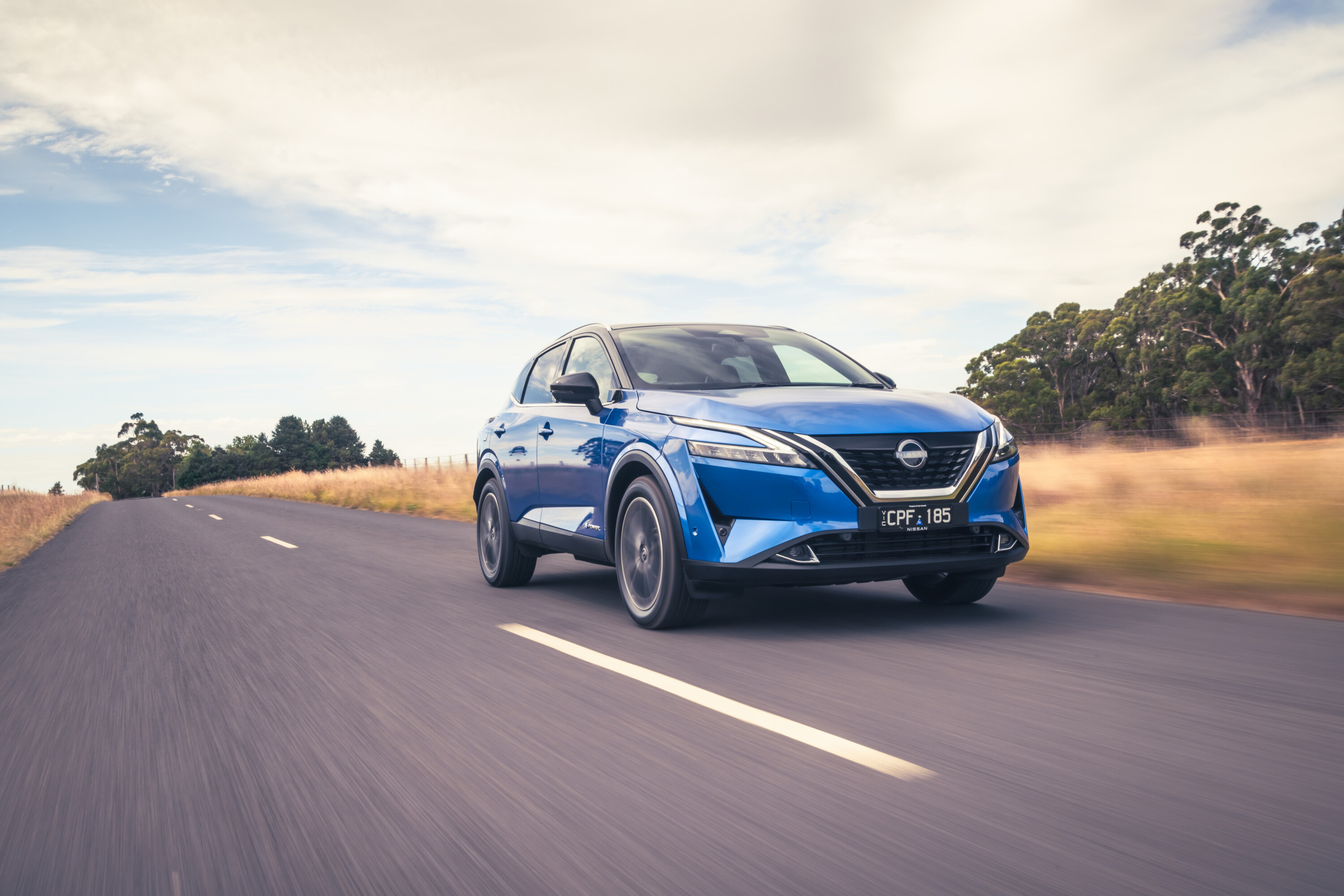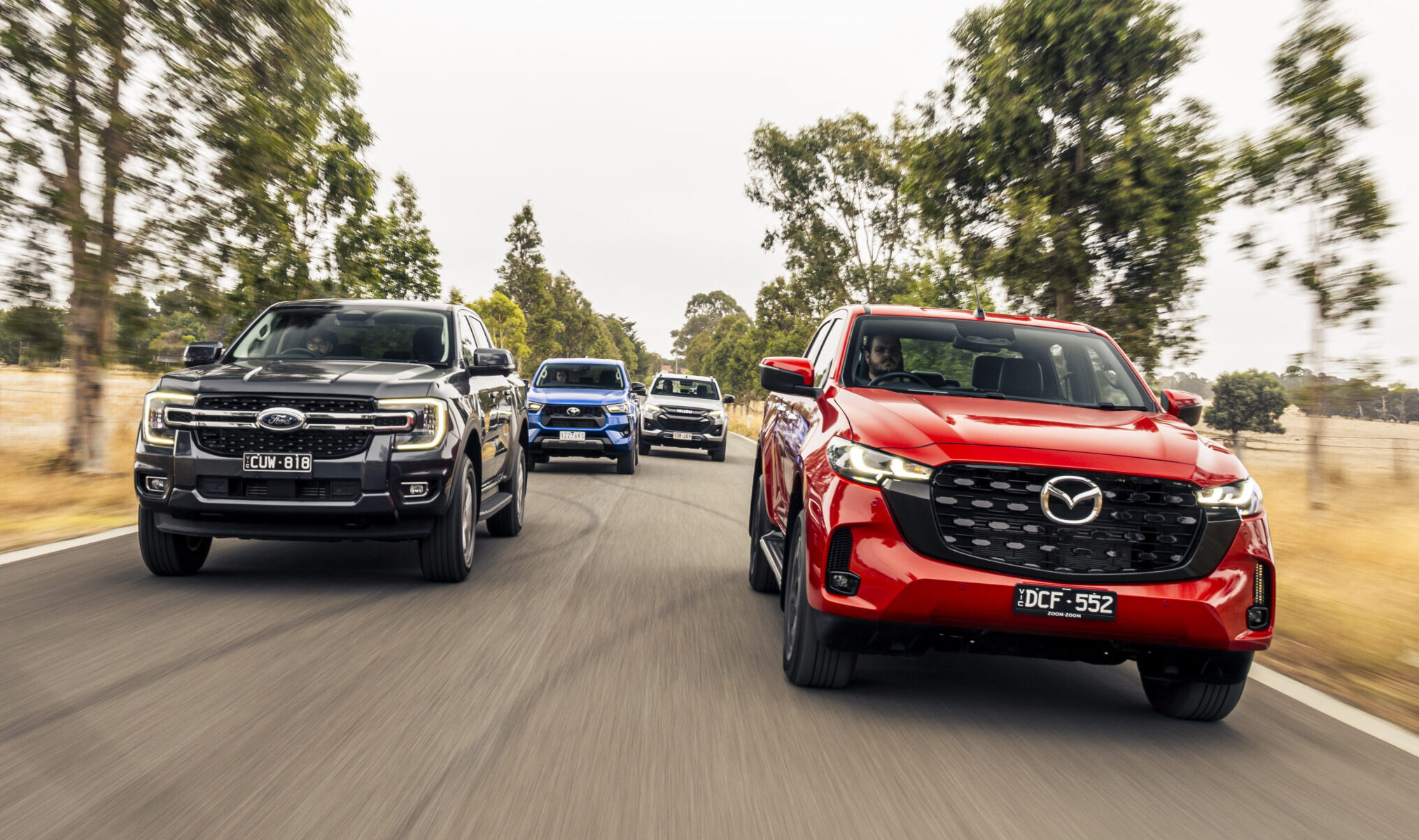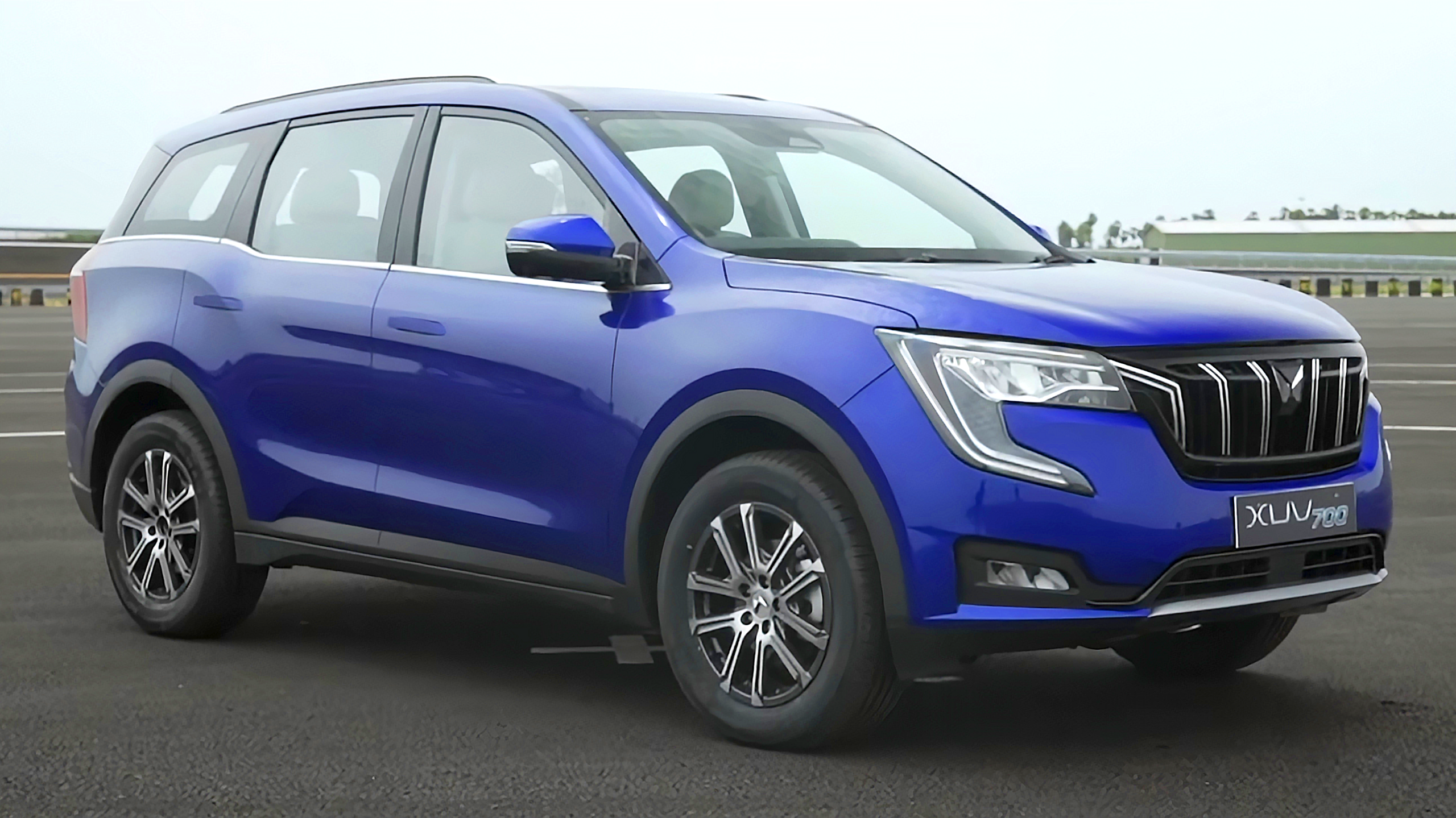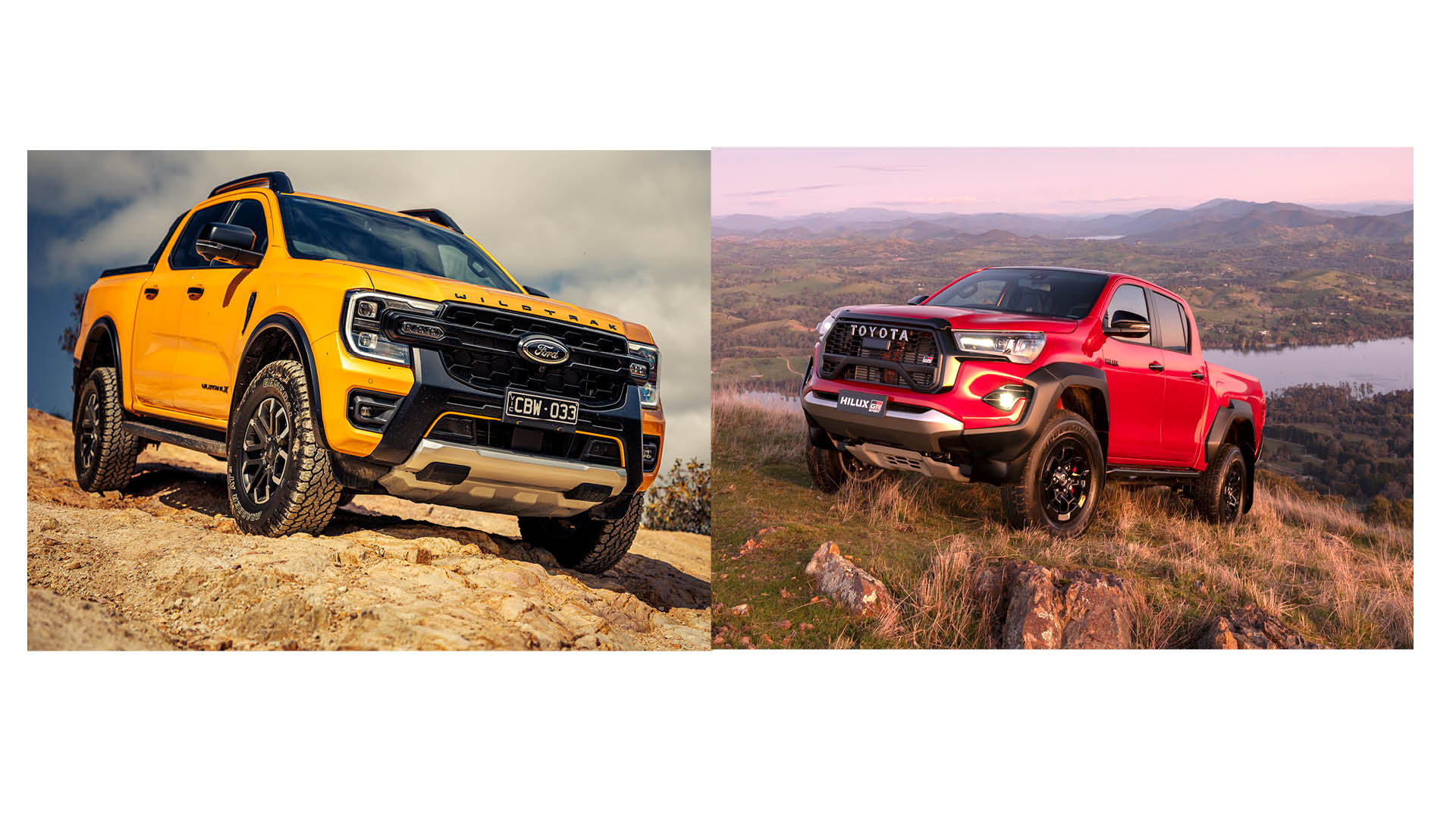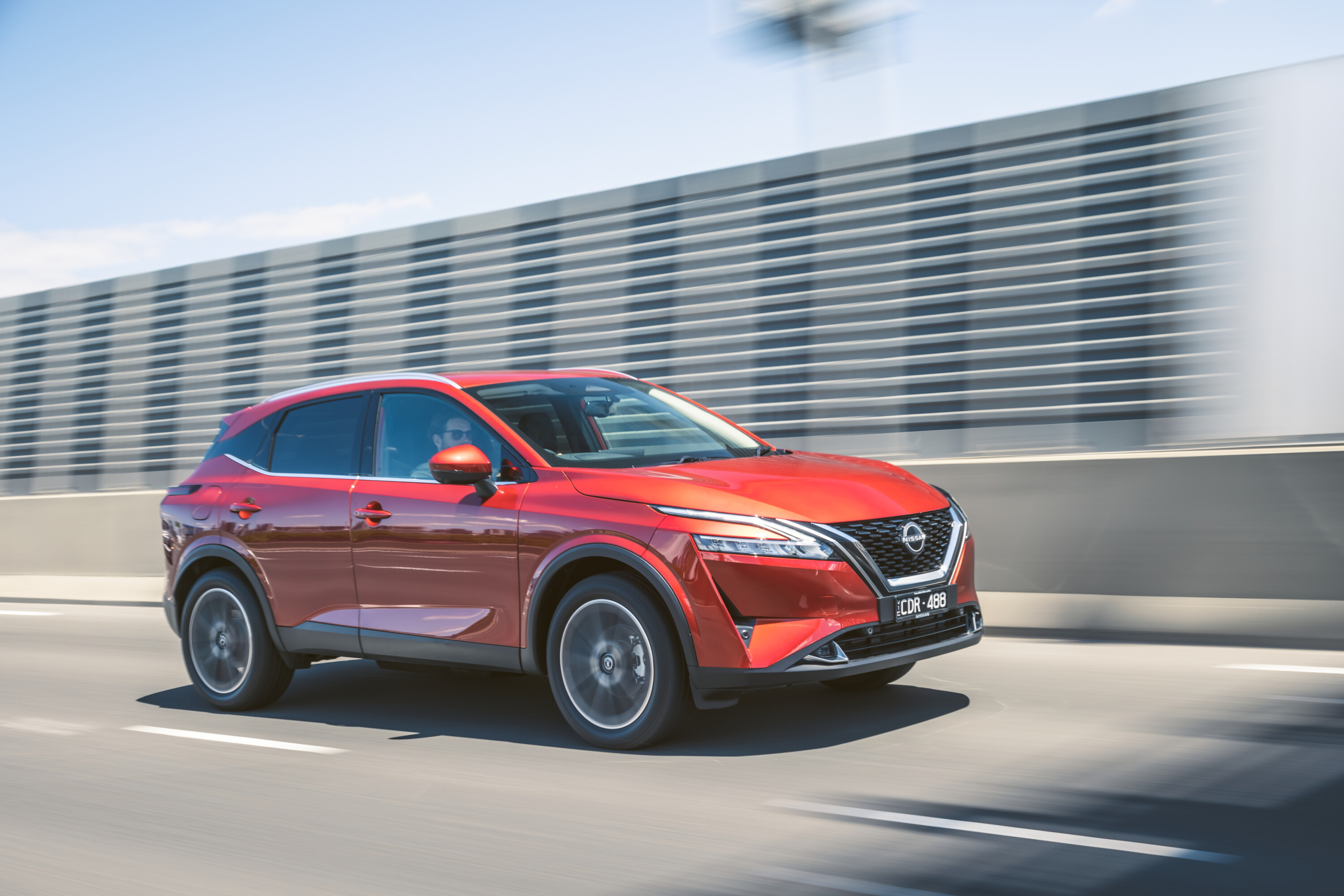
Score breakdown
Things we like
The third-generation Nissan Qashqai small SUV is the latest model of the Japanese carmaker’s refreshed SUV line-up to arrive in Australia, following in the footsteps of the Pathfinder and X-Trail.
Like the other two, it arrived with plenty of new tech, a new powertrain, a roomier cabin and a hefty price increase to pay for it all.
Based on the Nissan/Renault CMF-C platform, the Qashqai now features multi-link rear suspension to refine its ride.
The new Qashqai line-up comes in four grades, with hybrid E-Power variants expected to follow later this year.
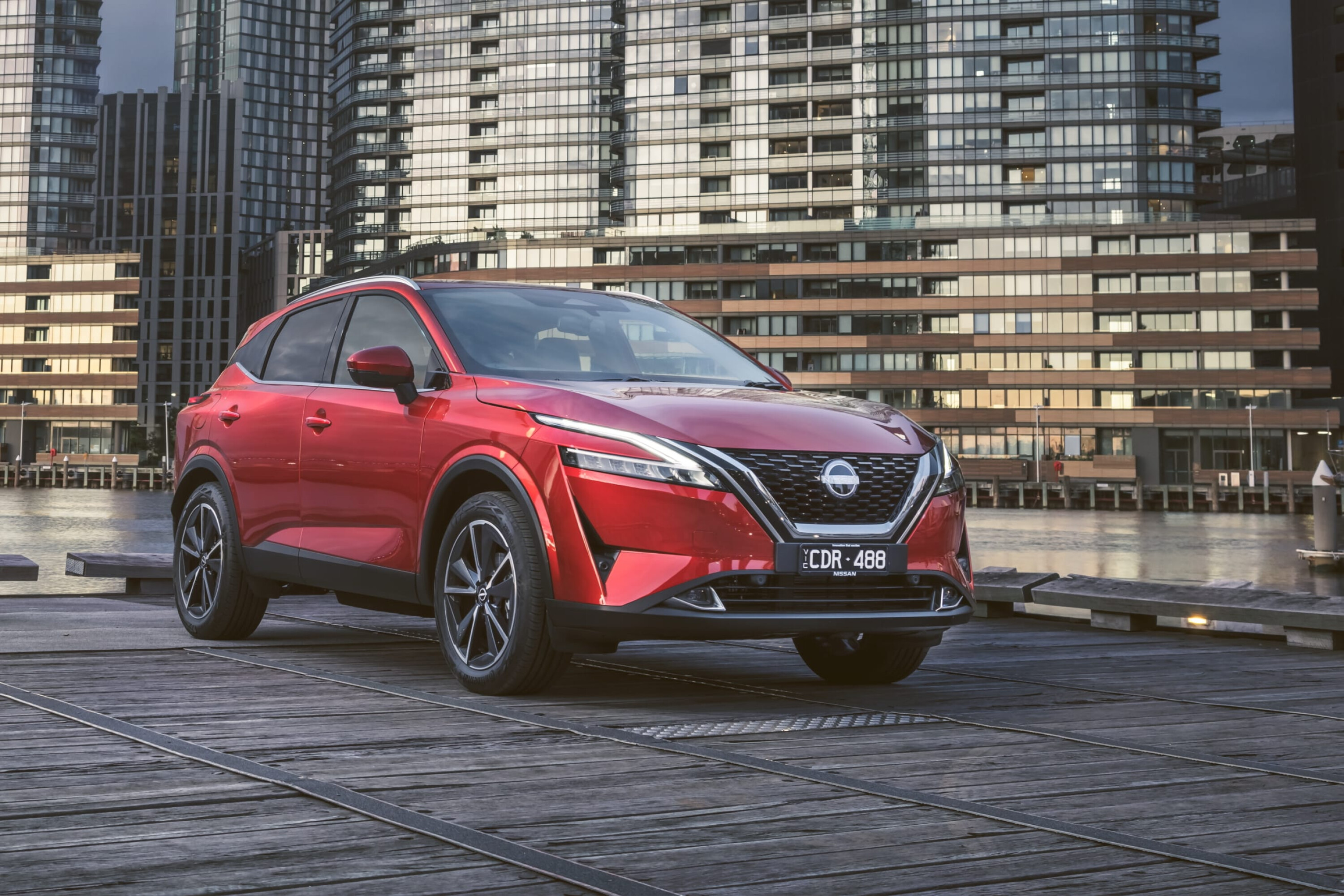
JUMP AHEAD
- Nissan Qashqai Pricing
- What body styles are available with the Qashqai?
- What features are in every Qashqai?
- What key features do I get if I spend more?
- How safe is the Nissan Qashqai?
- How comfortable and practical is the Nissan Qashqai?
- How much boot space does the Nissan Qashqai offer?
- I like driving, will I enjoy the Nissan Qashqai?
- Which Qashqai engine uses the least fuel?
- What is the Qashqai’s towing capacity?
- How long is the warranty and what are the Nissan Qashqai’s servicing costs?
- Which version of the Nissan Qashqai does Wheels recommend?
- What are the rivals to the Nissan Qashqai?
Nissan Qashqai Pricing
Loads of new features naturally bring higher pricing compared to the previous model, with the entry-level Qashqai ST now costing $3300 more, while the top-spec Ti has jumped by $8300.
What body styles are available with the Qashqai?
Five-door wagon only.
All Qashqais drive the front wheels only, and the model is classed as a small SUV, lower priced.
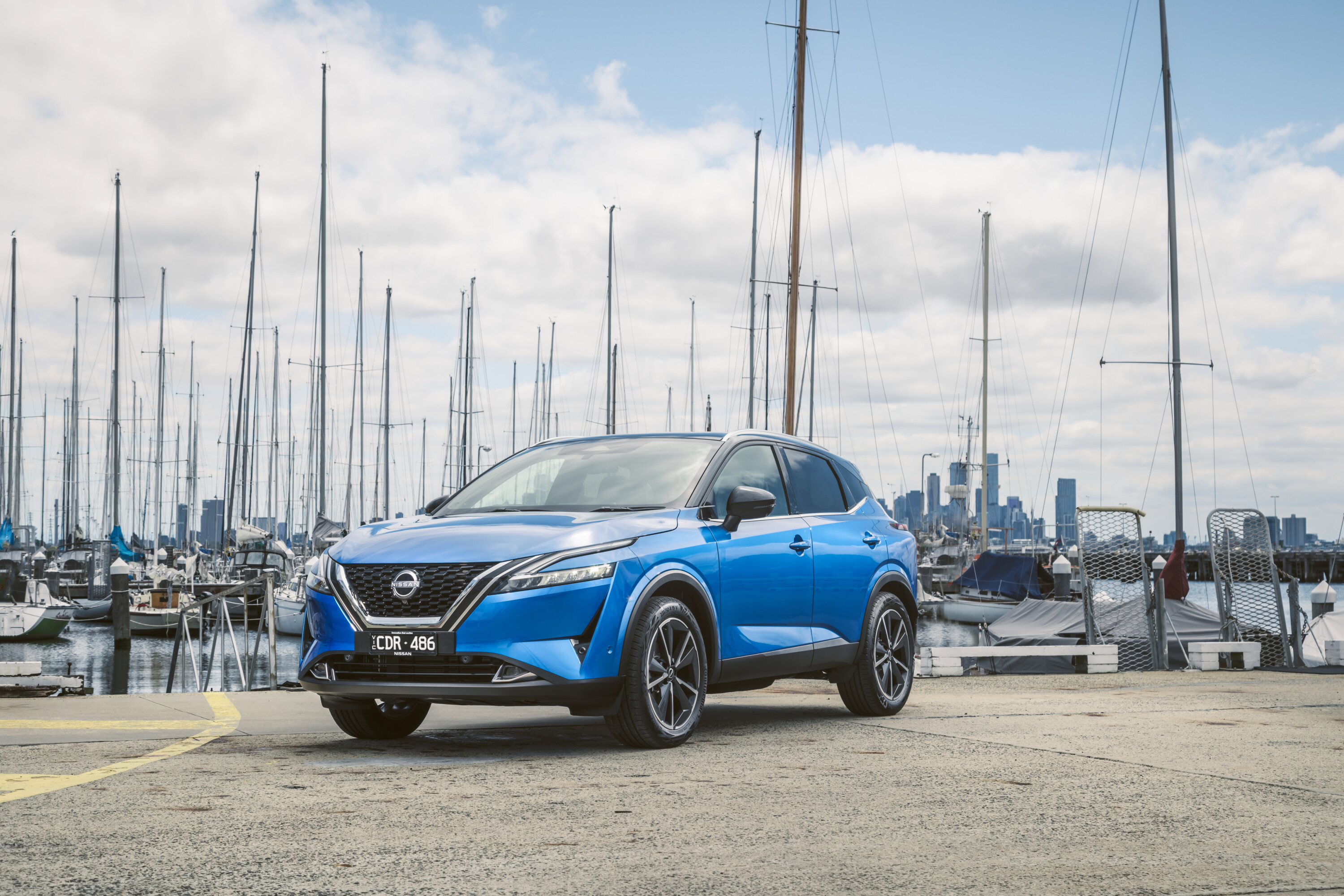
What features are in every Qashqai?
| 2023 Nissan Qashqai standard features | |
|---|---|
| Apple CarPlay/Android Auto | AM/FM/DAB+Digial radio |
| Bluetooth | 8.0-inch touchscreen |
| Front USB (Type A & Type C) | Rear USB (Type A & Type C) |
| Reversing camera | Rear parking sensors |
| Driver attention alert | Rear autonomous braking |
| Blind-spot intervention | Rear cross-traffic alert |
| High-beam assist | Traffic sign recognition/speed limiter |
| Autonomous emergency braking | Forward collision warning |
| Lane-keep intervention | Adaptive cruise control |
| 17-inch alloy wheels | Electronic park brake |
| Tyre pressure monitoring | Shark fin antenna |
| Electronic driver’s seat lumbar support | Leather gear selector knob |
| LED headlights | LED daytime running lights |
| Welcome light | LED rear lights |
| Paddle shifters | Dusk-sensing headlights |
| Splash-free wipers | Auto rear wiper (when reversing) |
| Air-conditioning | Manual air vents |
| Auto-folding door mirrors | |
The entry-level-Qashqai ST comes with cloth seats, 17-inch alloy wheels, a six-speaker sound system and an 8.0-inch touchscreen media unit.
What key features do I get if I spend more?
Stepping up to the Qashqai ST+ adds…
| 2023 Nissan Qashqai ST+ features (in addition to ST) | |
|---|---|
| 18-inch alloy wheels | Surround view monitor with moving object detection |
| Wireless Apple CarPlay | 12.3-inch touchscreen |
| Satellite navigation | LED front fog lights |
| Rain-sensing wipers | |
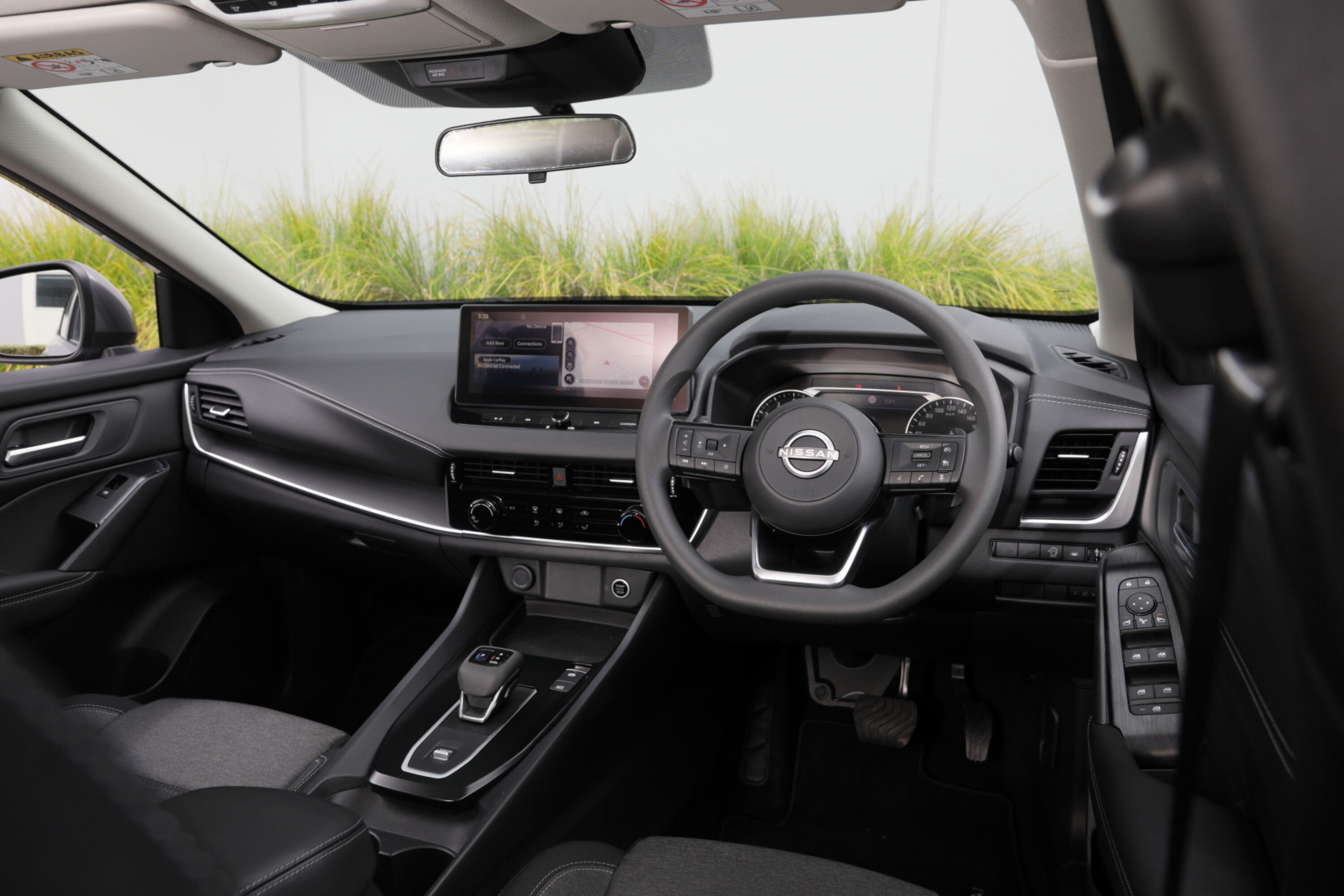
Spending more on the Qashqai ST-L brings…
| 2023 Nissan Qashqai ST-L features (in addition to ST+) | |
|---|---|
| 19-inch alloy wheels | Cloth and Syntech leather seats |
| ProPILOT+ driver assist tech | Front parking sensors |
| Wireless smartphone charger | Privacy glass |
| 8-way power-adjustable driver’s seat | 6-way manual passenger seat adjustment with lumbar support |
| Heated steering wheel | Heated front seats |
| Roof rails | Leather steering wheel |
| Ambient lighting (centre console) | Auto-levelling adaptive LED headlights |
| Dual-zone climate control | LED signature rear lights |
| Auto-dimming rear-view mirror | Rear-seat armrest with cup holders |
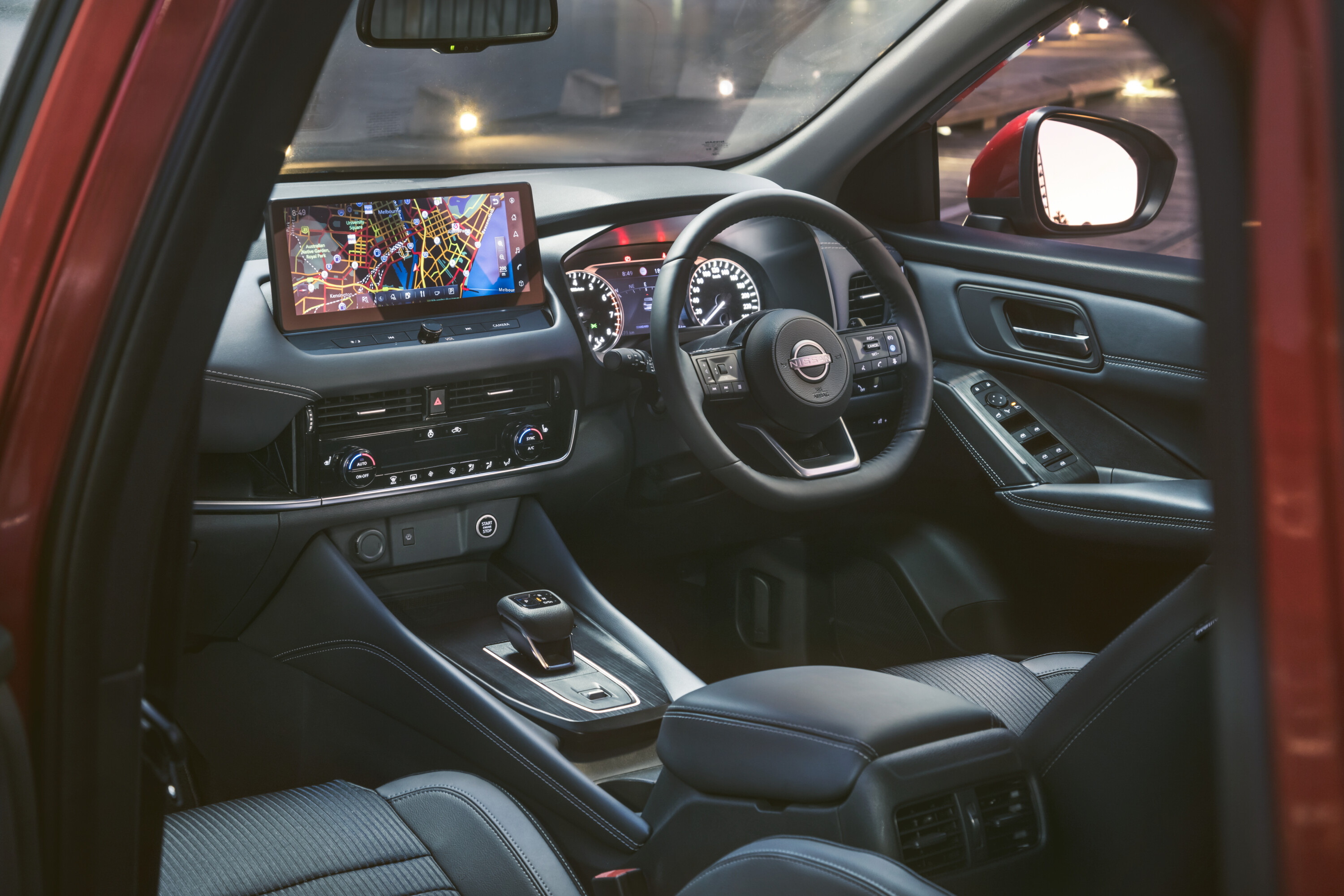
Opt for the range-topping Qashqai Ti and you gain…
| 2023 Nissan Qashqai Ti features (in addition to ST-L) | |
|---|---|
| Quilted premium leather seats | Keyless entry and start |
| 12.3-inch digital instrument cluster | Driver’s seat position memory |
| 8-way power-adjustable massage front seats | Panoramic sunroof |
| 10-speaker Bose premium sound system | Parking assist |
| Ambient lighting in front doors | Tilting door mirrors when reversing |
| Door mirrors with memory function | Hands-free powered tailgate |
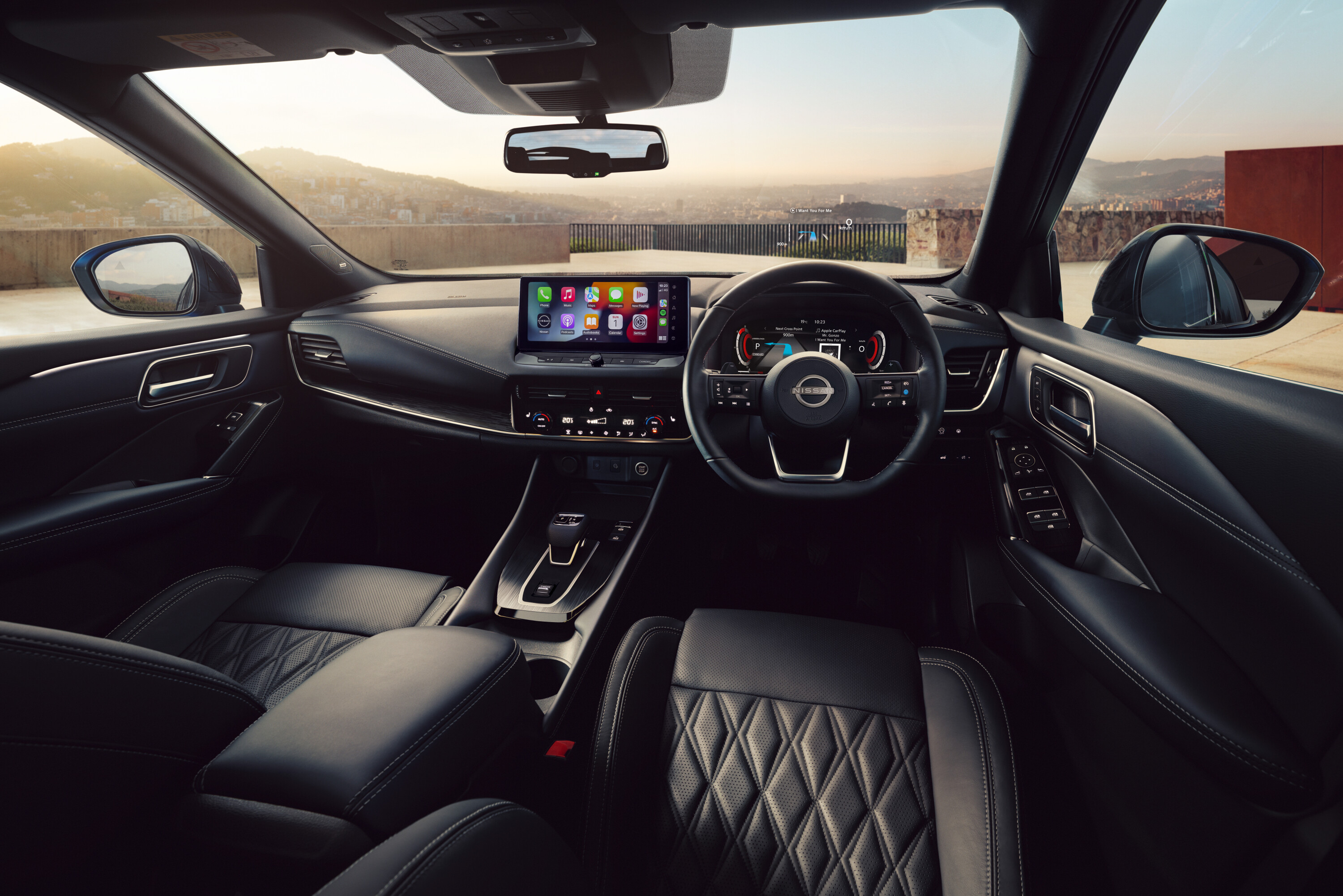
How safe is the Nissan Qashqai?
The 2023 Qashqai nets a five-star ANCAP rating, all trims coming with seven airbags and all the major active safety features.

How comfortable and practical is the Nissan Qashqai?
The interior of the new Qashqai feels premium compared to the previous generation and is considerably more stylish.
It is surprisingly roomy for a small SUV but with average levels of storage space including a handy bin in the centre console, two cup holders for the front and two for the back, and enough room in each door for a bottle too, if not much else.
The seats are suitably comfortable and provide a good driving position. However, a lack of under-thigh support can be felt on longer journeys.
Outward visibility has been improved thanks to a thinner but stronger A-pillar design, and the side mirrors are mounted on the doors so they don’t block your view past the A-pillar.
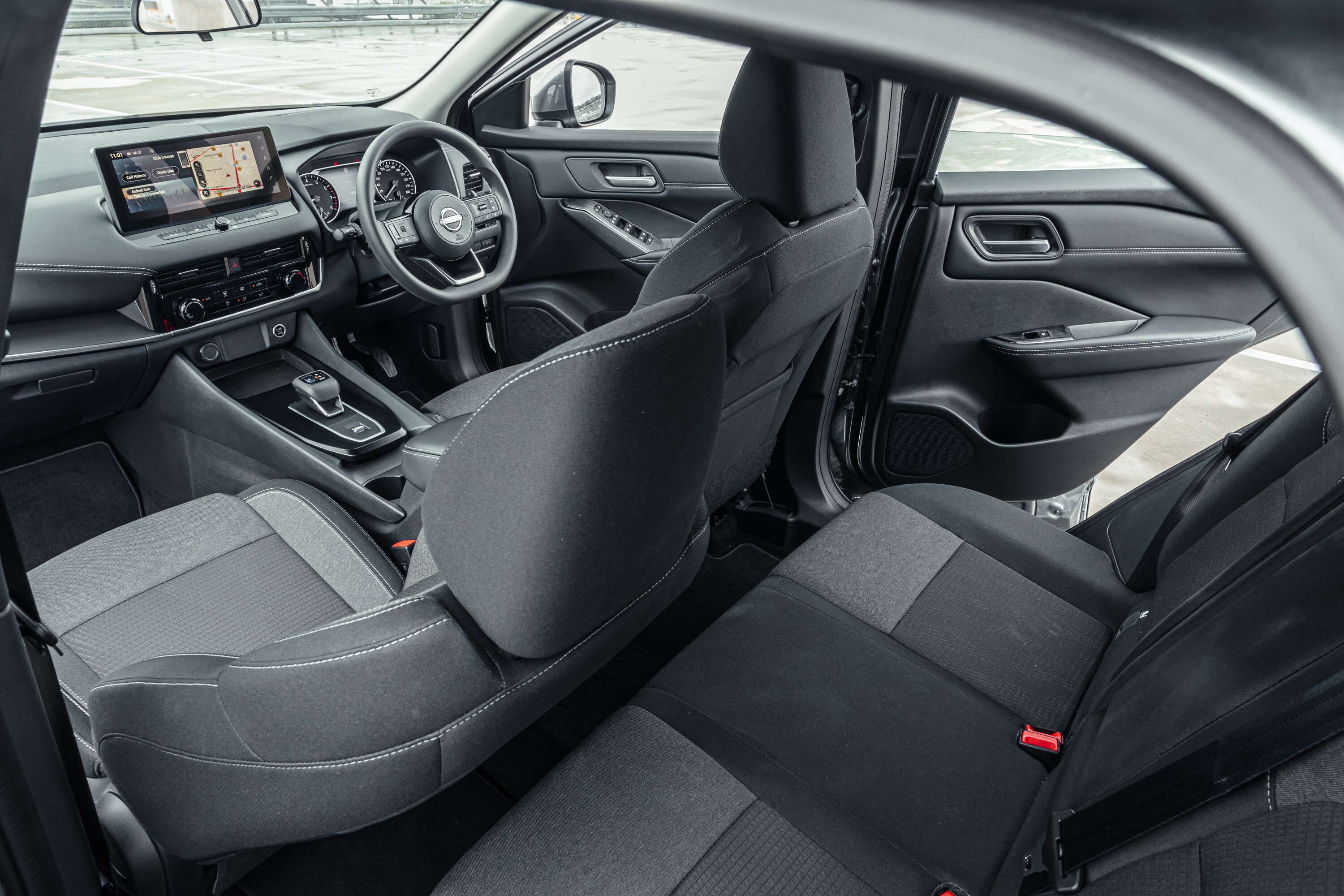
The traditional gear selector has been replaced with a sliding shifter, which looks sleek and frees up space on the centre console.
A high-mounted infotainment screen also helps the dashboard look. The 12.3-inch touchscreen, in all but the entry-level Qashqai, looks impressive. However, the software it runs looks a little dated.
Touchpoints generally feel high quality, particularly in upper-spec variants with the leather-trimmed steering wheel; the urethane steering wheel in ST and ST+ grades not so much.
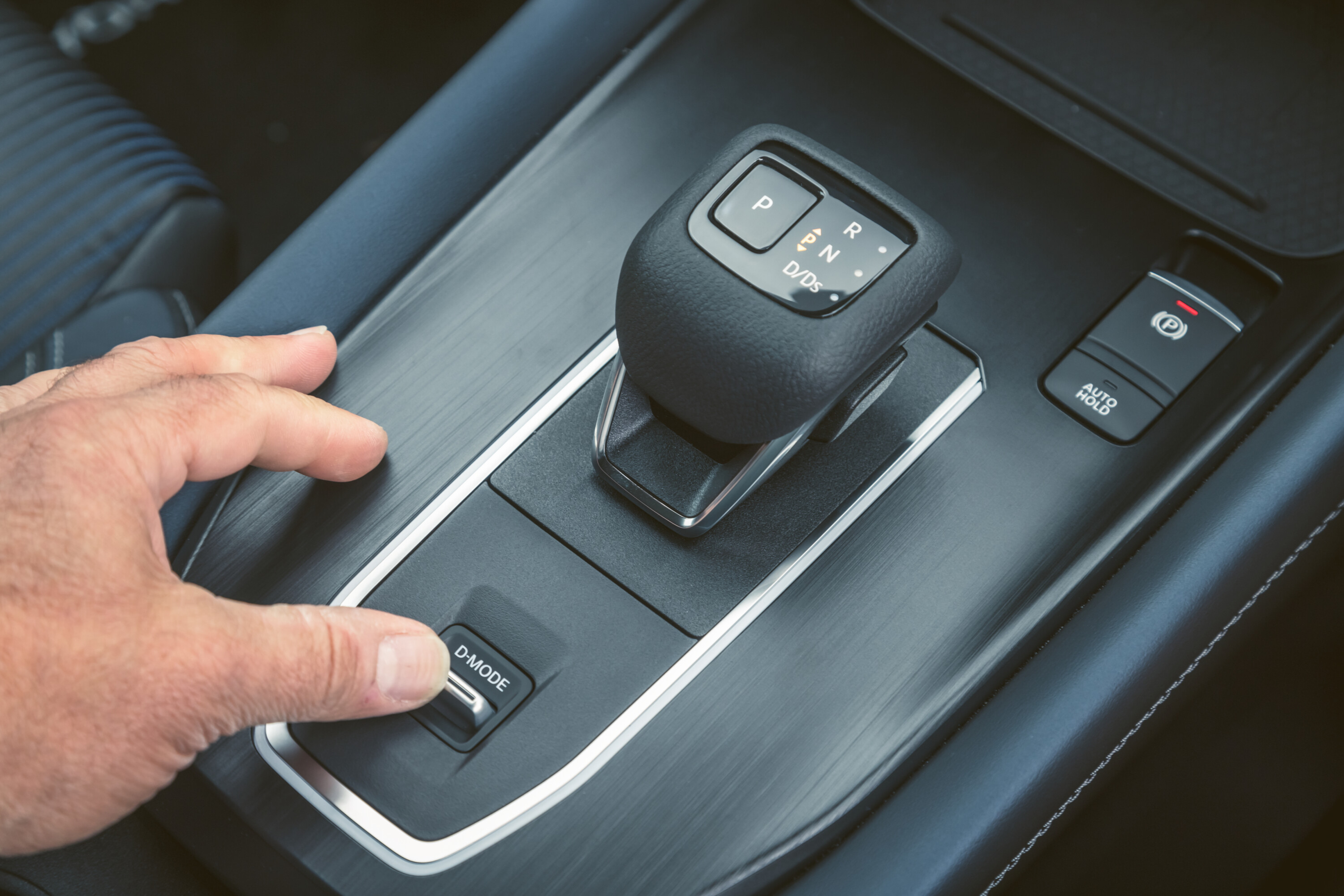
Switchgear is unintimidating and Nissan has thankfully retained a decent array of buttons rather than burying many functions in the infotainment screen.
The brushed metal effect on the dashboard brightwork, the contoured and stitched leather-look dash roll top, the damped feel to the switchgear and the slick short-travel gear selector all combine to make the Qashqai’s interior feel a step above the norm.
Rear space and comfort
The Qashqai’s rear seats are generously sized, with more than acceptable headroom and reasonable knee room.
Nissan claims an additional 28mm of knee room over the previous model (608mm in total), while headroom has increased by 15mm.
Rear occupants can also make use of two map pockets, and charge devices via either USB-A or USB-C ports.
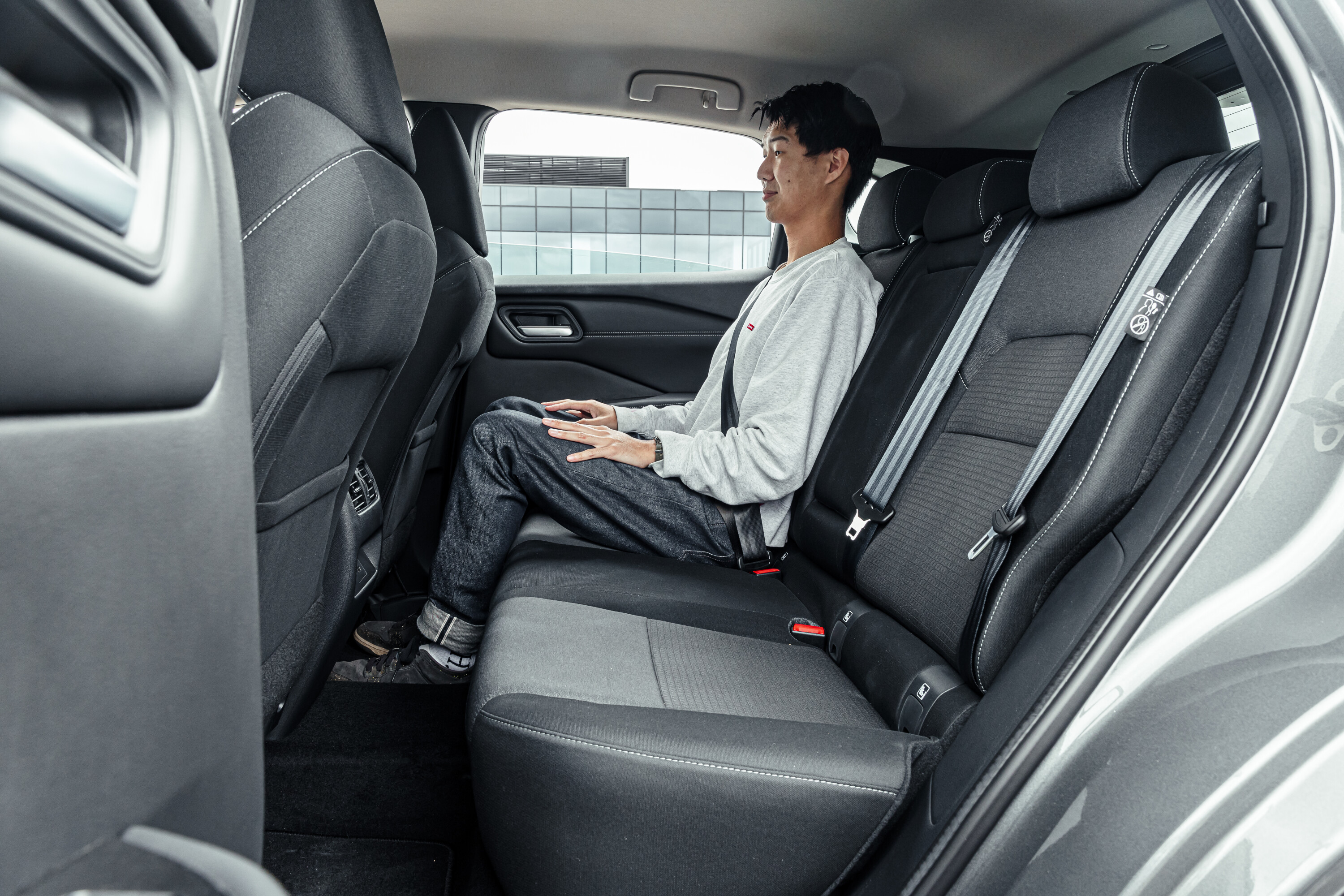
One major plus is the width of the rear door openings for getting little ones in and out.
And for young families, installing a child seat is relatively simple, with easily-found access points for the ISOFIX anchors (although they are covered by those annoying little clips that will get lost the second you take them off) and even the presence of a hard plastic parcel shelf doesn’t really impede the hooking up of the top tether anchor.
One major plus is the width of the rear door openings for getting little ones in and out. The doors open to 85 degrees and hold themselves there – which is a godsend for parents and carers.
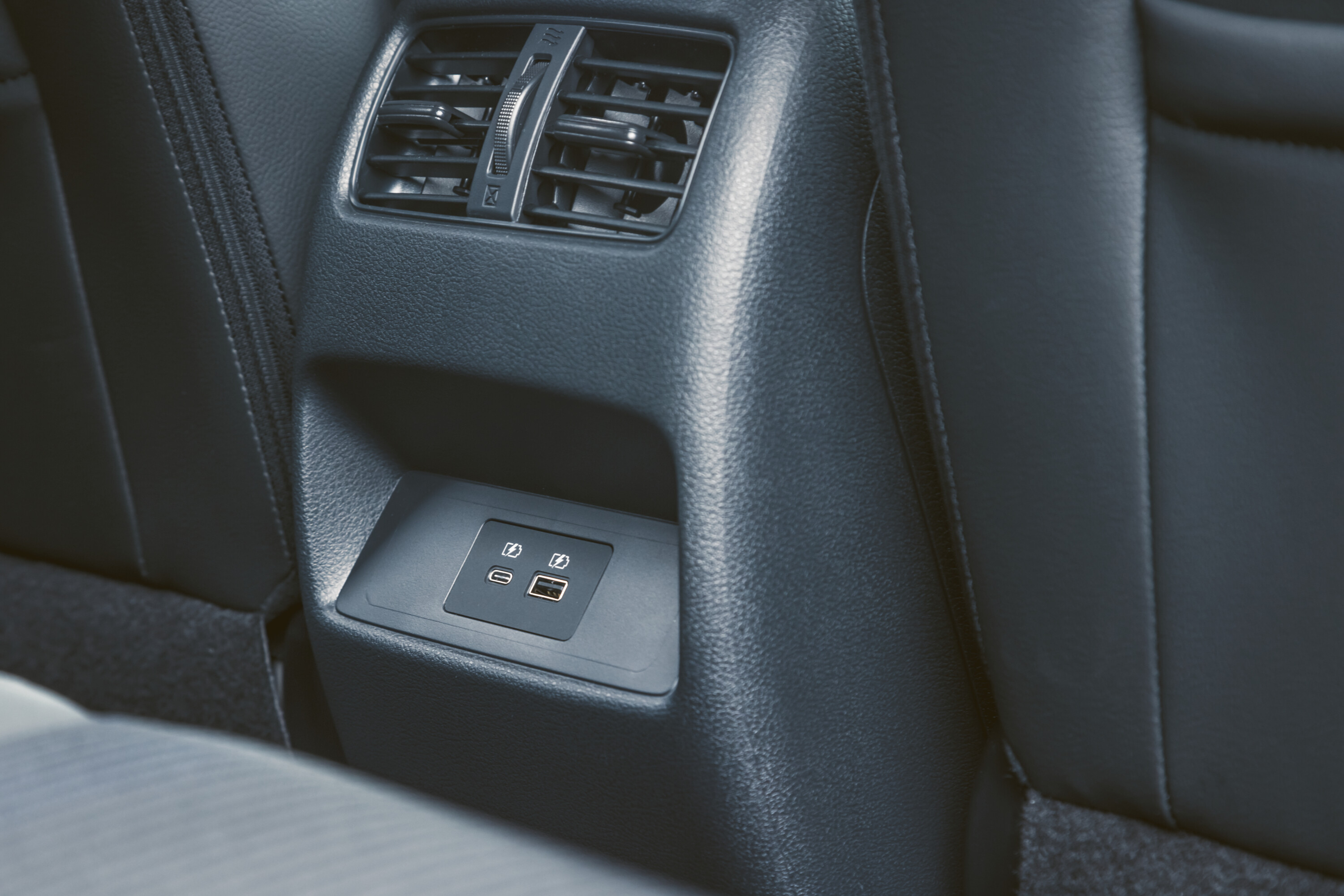
How much boot space does the Nissan Qashqai offer?
The Qashqai’s 429-litre boot space is ample for an SUV of its size and easily competes with its nearest rival, the Toyota Corolla Cross, falling short by a mere seven litres.
With the second-row seats folded, the cargo-carrying capacity rises to 1524L and it can be split 60:40, with the larger section on the front passenger’s side.
That said, the boot area isn’t cavernous, and it has no side cubbies or spaces to put little items. But it is more than capable of accommodating a week’s worth of groceries, a pram plus associated baby/child gear, or all the bits and pieces needed for a day out.
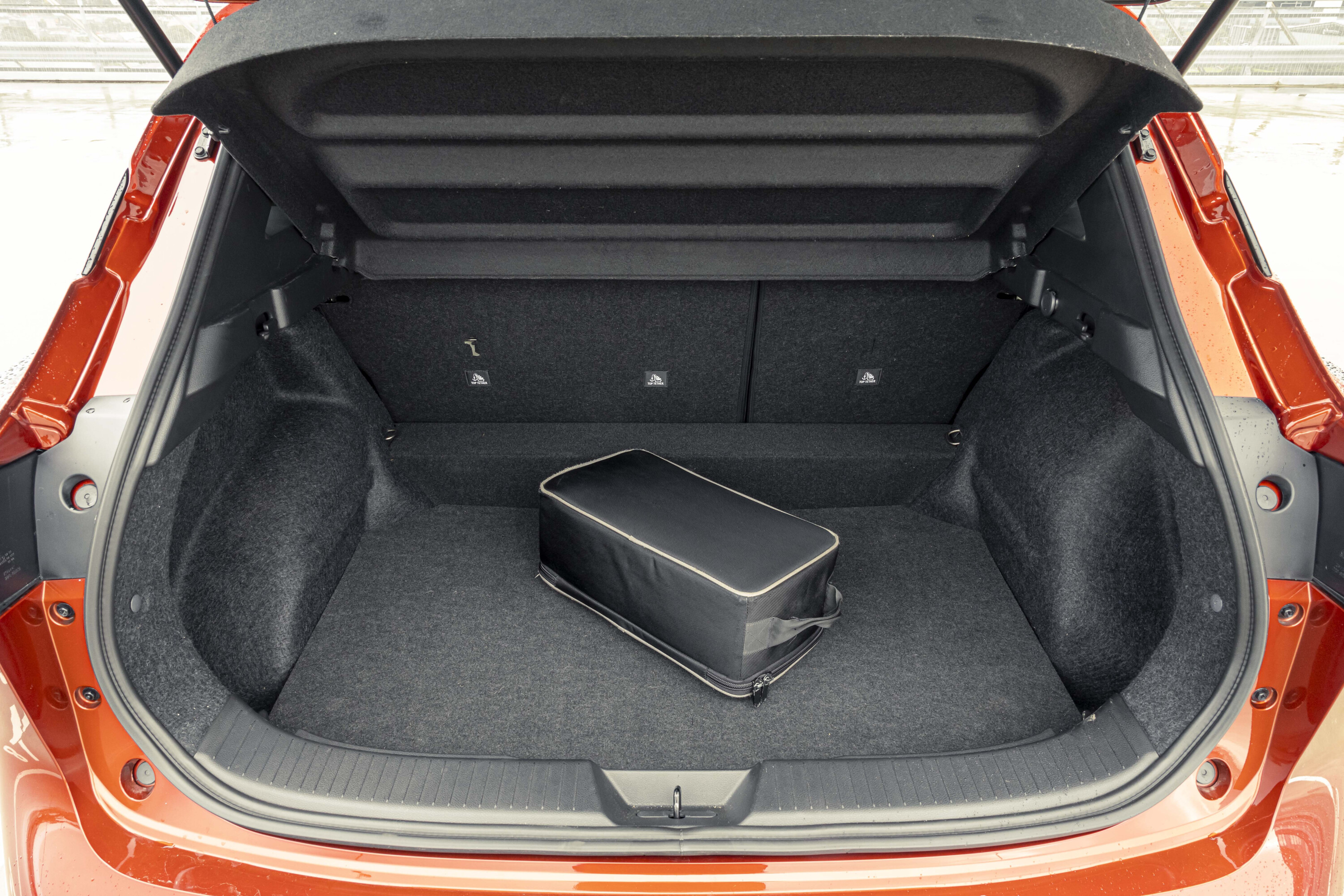
The up-spec Qashqai Ti features a removable panel that creates separate compartments. It can be handy, but it and the boot-mounted Bose subwoofer reduce boot space to 418 litres.
Beneath the boot floor is a space-saver spare measuring 155/90 R17.
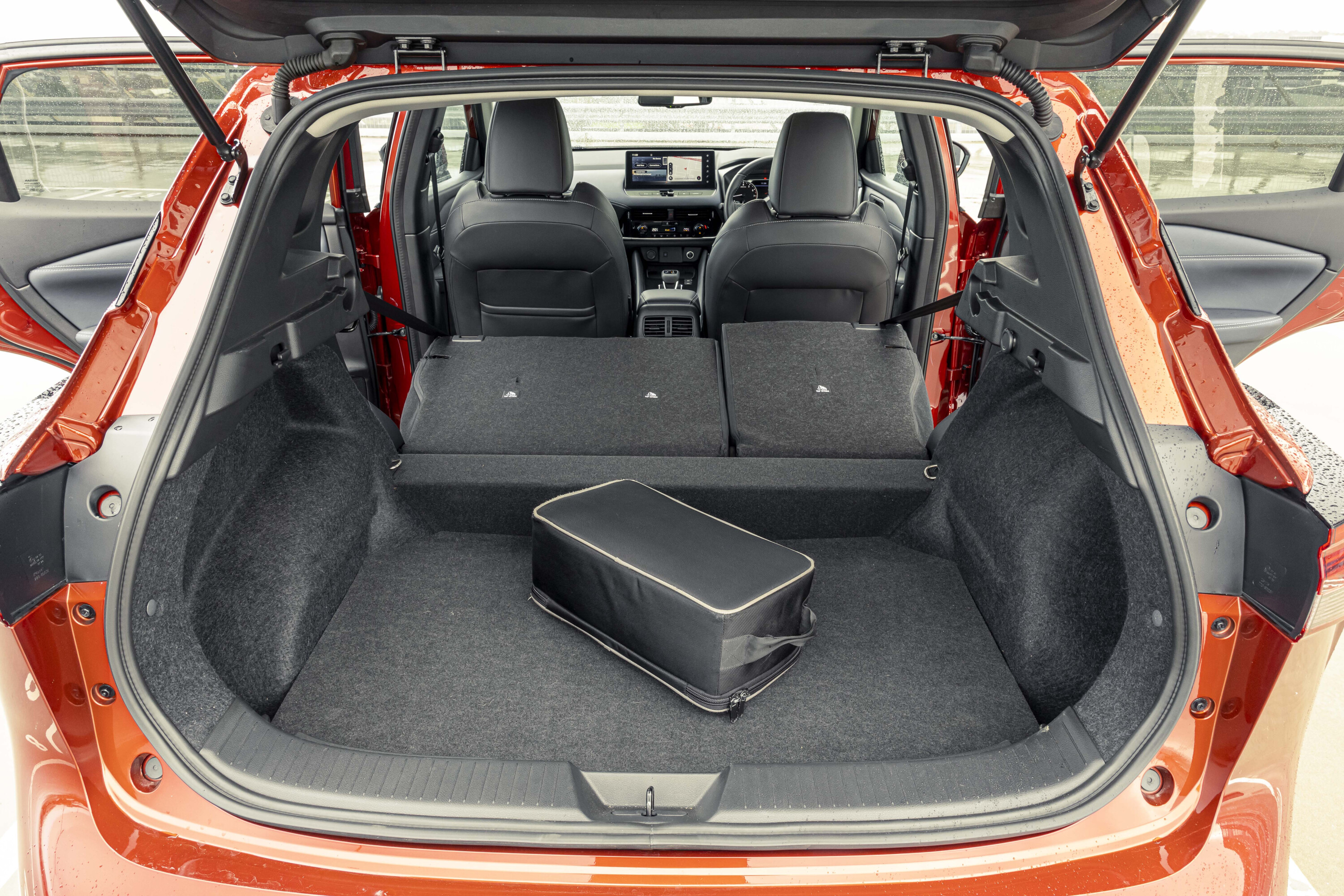
I like driving, will I enjoy the Nissan Qashqai?
The Qashqai allows for considerably more spirited driving than many of its small SUV rivals, thanks to sharp dynamics.
Accurate steering is backed up by minimal body roll thanks to the new Qashqai’s chassis bringing 50 per cent more torsional rigidity and sophisticated multi-link rear suspension.
While there is no all-wheel-drive option, whether driving along twisty roads or through roundabouts, the Qashqai has a reassuringly planted feel.
However, the Qashqai’s sharp handling does come at a cost to ride comfort in the form of a firmish ride, which means you feel every bump and crevice, particularly on the upper-spec variant’s 235/50 R19 rubber.
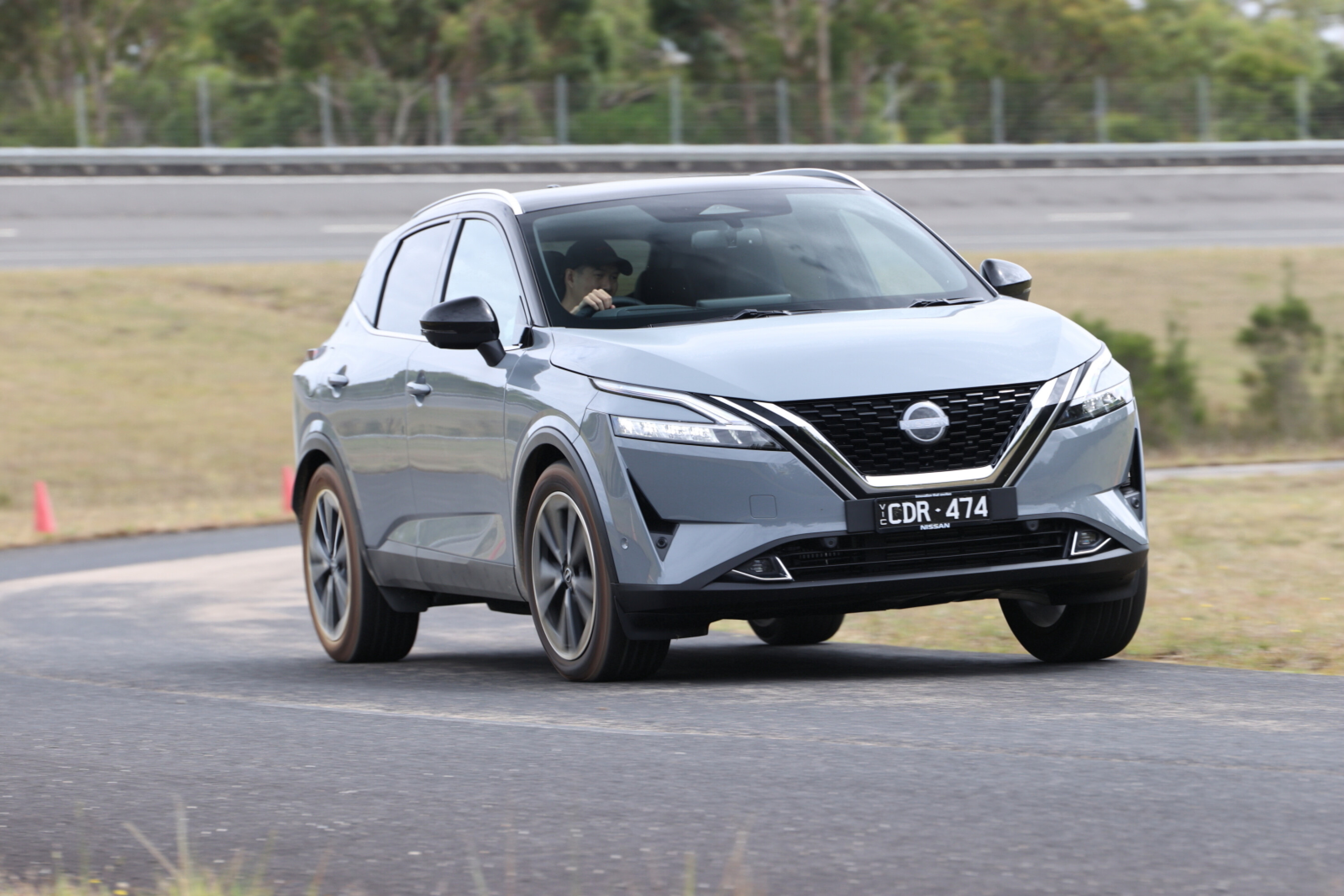
This could prove a little grating if your daily drive doesn’t include a bunch of hairpins.
It’s a shame because the 1.3-litre turbocharged petrol engine is a welcome step up over the previous model’s bland 2.0-litre naturally aspirated unit.
The turbo helps deliver noticeably stronger mid-range performance while feeling quite refined.
Although the Qashqai has an automatic continuously variable transmission (CVT) it’s not constantly revving when making any sort of progress thanks to the torque peak coming in from 1600-3750rpm, and power peaking at a modest 5500rpm.
If any of the terms in this section have left you scratching your head, these articles will help bring you up to speed!
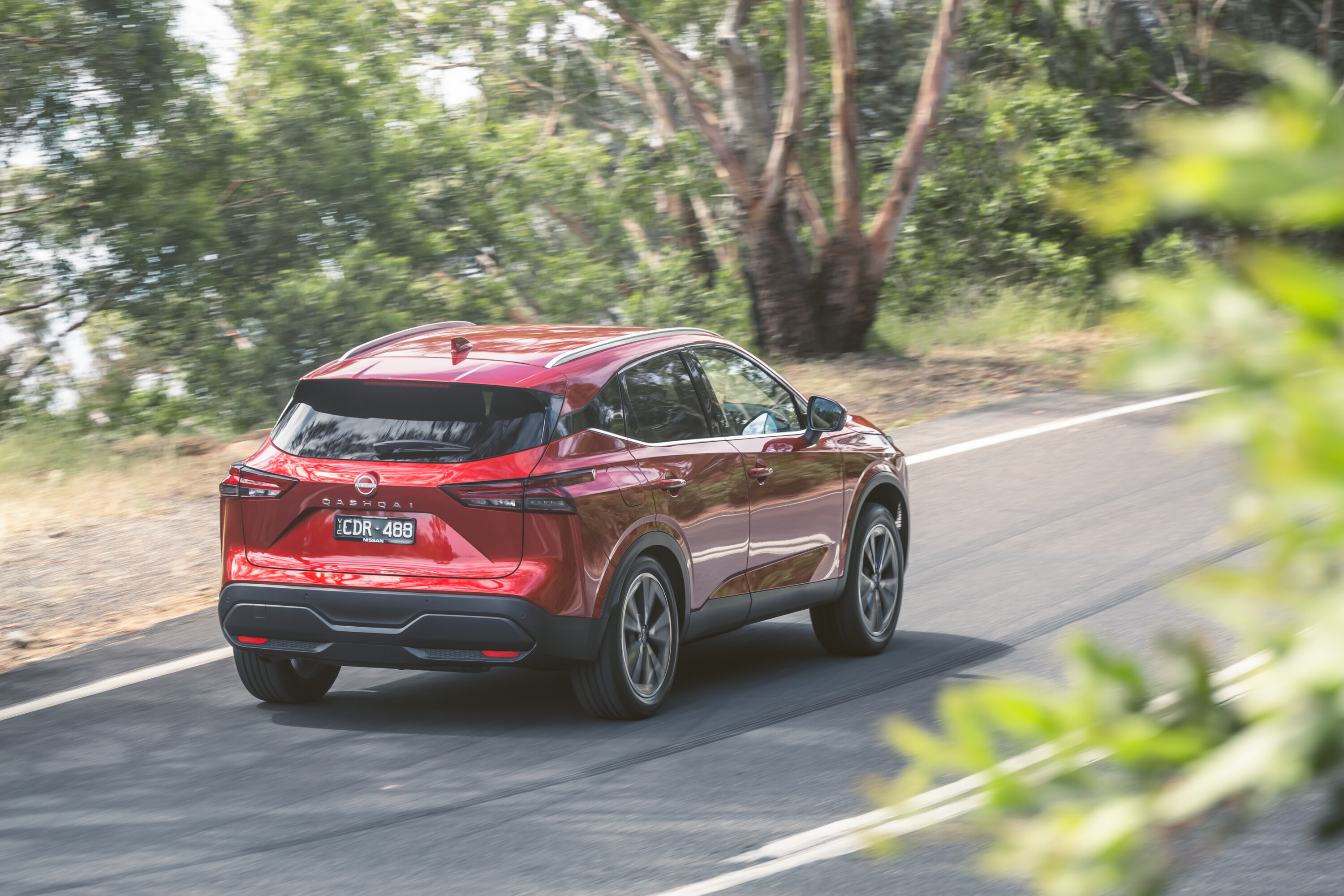
- What is a Powertrain or Drivetrain?
- Power vs torque
- Car suspension explained
- Automatic transmissions (‘gearboxes’) explained
- Chassis control systems explained
- Car vs Ute vs SUV: How the vehicle you buy should guide the way you drive
So far, Qashais sold in Australia are only available with a four-cylinder, 1.3-litre turbocharged petrol engine coupled with a CVT auto and front-wheel drive.
An ‘E-Power‘ Hybrid powertrain, similar to that found in the bigger X-Trail is due to arrive later in 2023.
If the X-Trail is any guide, E-Power Qashqais won’t necessarily be a lot more frugal than the 110kW/250Nm turbo, which has a respectable official combined fuel consumption figure of 6.1L/100km.
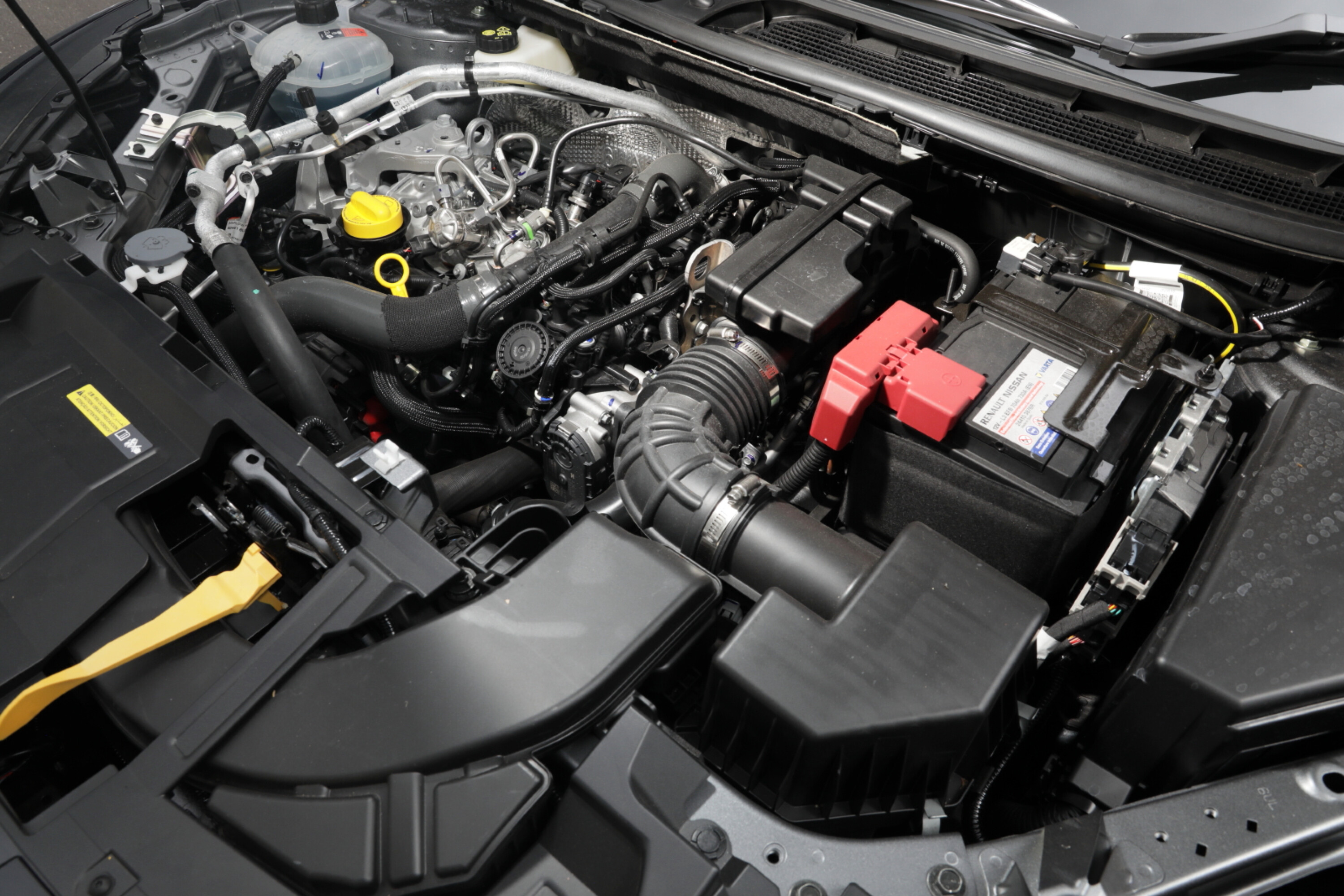
What is the Qashqai’s towing capacity?
The Qashqai can tow a braked load up to 1500kg or 750kg unbraked.
Maximum trailer tow ball weight is 100kg.
How long is the warranty and what are the Nissan Qashqai’s servicing costs?
As with the rest of Nissan’s Australian range, the Qashqai is covered by a five-year/unlimited-kilometre warranty, including five years of 24-hour roadside assistance.
The Qashqai’s service intervals are 12 months or 15,000km and a capped-price service plan is available:
| Nissan Qashqai capped-price servicing costs | |
|---|---|
| 15,000km | $375 |
| 30,000km | $694 |
| 45000km | $398 |
| 60,000km | $1027 |
| 75,000km | $422 |
| 90,000km | $1108 |
Which version of the Nissan Qashqai does Wheels recommend?
When there is only one powertrain and each variant comes with all the important stuff, choosing a pick of the bunch usually comes down to price or perceived value.
This is as good a time as any to point out that with desirable mid-spec options straddling the $40,000 mark, the Nissan Qashqai is not exactly a cheap small SUV.
But it is very well equipped and safe, and its roomy cabin means smaller families can make do with this instead of going for a medium SUV.
The ST+ is the sweet spot of the range in terms of equipment levels and price, though additional technology and creature comforts available in the ST-L will no doubt tempt quite a few Qashqai buyers to fork out the additional $4300.
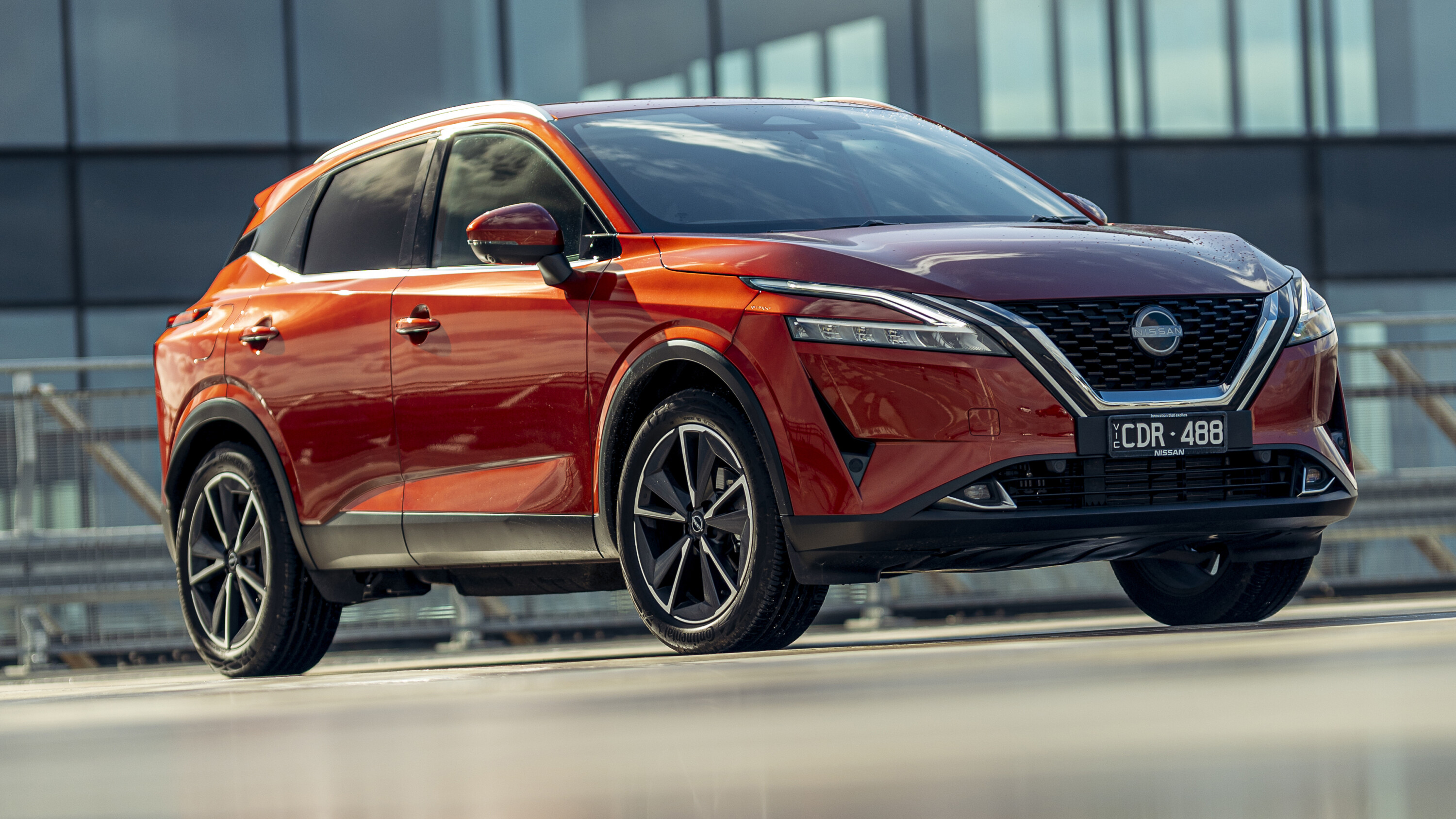
What are the rivals to the Nissan Qashqai?
Other small SUVs in this segment are:
ud83dudd3c Back to topScore breakdown
Things we like
We recommend
-
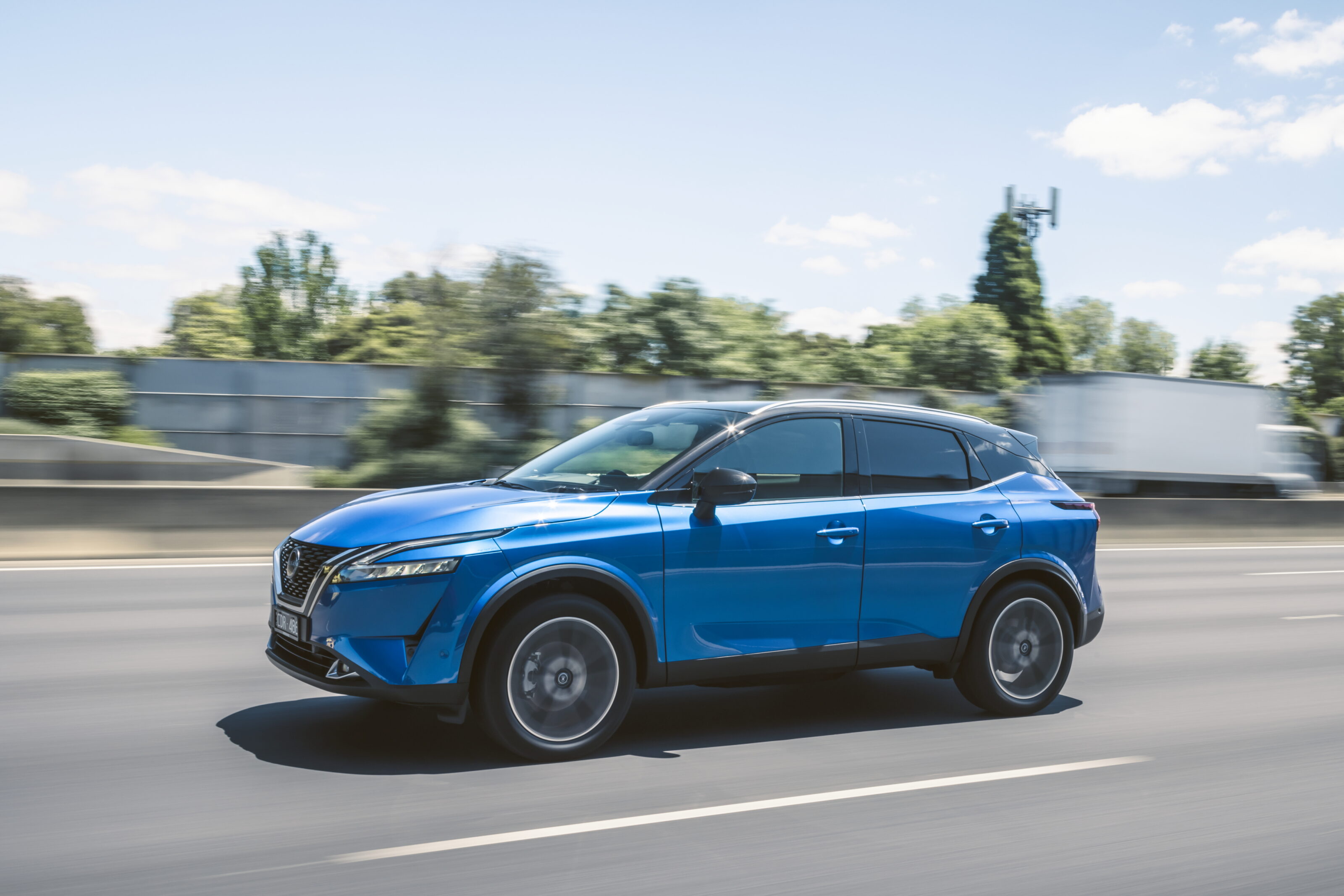 News
News2023 Nissan Qashqai Australian pricing and features confirmed
The all-new Qashqai has landed in Australia and prices are up between $3300-8300 depending on trim
-
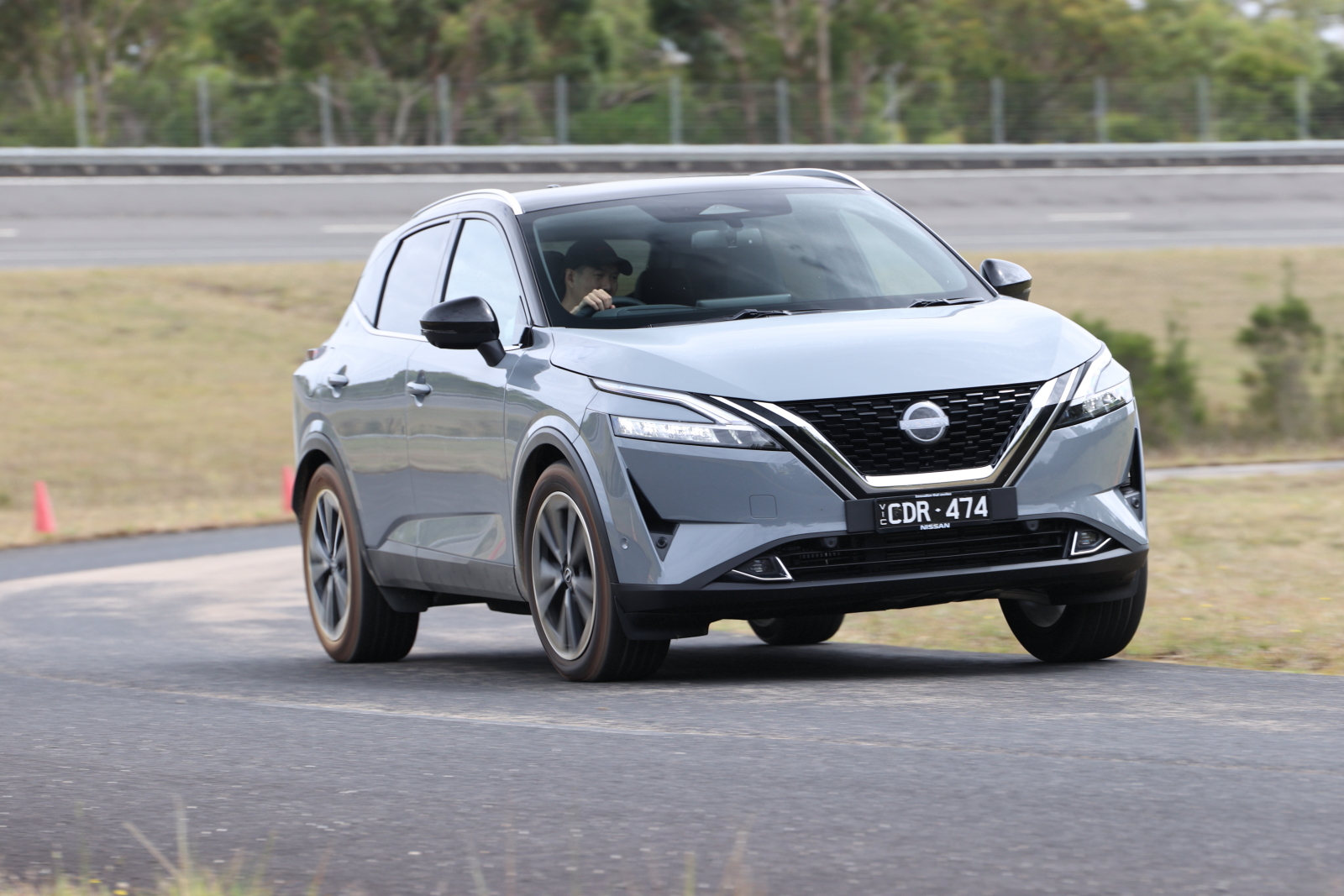 Reviews
Reviews2023 Nissan Qashqai ST+ review
Want the sharpest-driving baby SUV? Nissan's latest Qashqai is a great place to start looking
-
Reviews
VIDEO: 2023 Nissan Qashqai review – First Australian drive
The third-gen Qashqai ain't cheap, but impresses with a spacious, plush cabin and class-leading cabin technology

